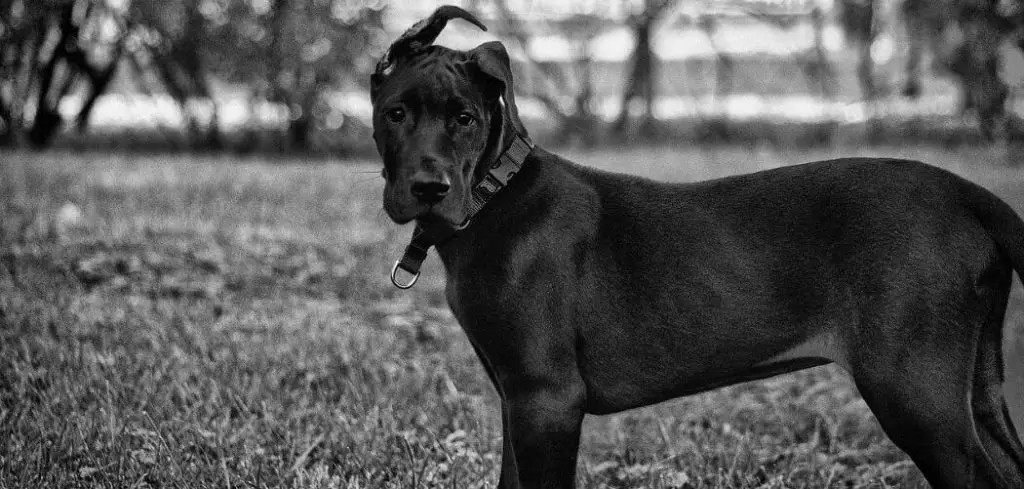When an old dog is not eating and also throwing up water, it’s a red flag that their body is struggling with more than just a picky appetite.
Vomiting liquid, especially clear or foamy water, often signals irritation in the stomach, dehydration, or an underlying disease that needs urgent attention.
We outline the common reasons why an old dog may not be eating and throwing up water, what you can do, and when to seek veterinary help.
Old Dog Not Eating and Throwing Up Water — Why It Happens
When older dogs vomit water and refuse food, it usually means their digestive system is inflamed or failing to process properly.
Causes can range from gastritis and kidney disease to more severe concerns like blockages, infections, or even late-stage chronic illnesses.
Some dogs may be drinking too quickly, while others are unable to keep anything in their stomach due to advanced health problems.

Old Dog Not Eating and Throwing Up Water: Common Causes
Gastritis
Gastritis refers to inflammation of the stomach lining. In older dogs, this can be triggered by eating something they shouldn’t, side effects of medication, or an infection.
Dogs with gastritis may vomit water or foamy liquid because their stomach cannot tolerate food or even plain fluids. Alongside vomiting, loss of appetite is common because the stomach lining feels sore.
If left untreated, gastritis can lead to dehydration and weight loss, which are especially dangerous in seniors.
Read more: Old Dog Not Eating and Throwing Up Yellow (Could it be bile?)
Kidney Disease
Kidney failure is one of the most common illnesses in older dogs, and it often shows up as vomiting, loss of appetite, and increased thirst.
Because failing kidneys can’t filter toxins effectively, nausea develops, leading to vomiting of water or clear fluid. Dogs may appear weak, uninterested in food, and may even have a chemical odor on their breath.
This condition requires long-term veterinary care and can be life-threatening if not addressed quickly.
Intestinal Obstruction
If an older dog has swallowed something that causes a blockage, even water cannot pass through the digestive tract. This leads to repeated vomiting shortly after drinking.
Along with refusal to eat, owners may notice bloating, restlessness, and severe discomfort. In these cases, vomiting water is an early warning sign before more serious complications like intestinal rupture occur.
Blockages are an emergency and require immediate veterinary treatment.
Pancreatitis
Pancreatitis, or inflammation of the pancreas, can cause severe digestive upset. Older dogs are more at risk, especially if they’ve had fatty meals or a history of digestive issues.
When the pancreas is inflamed, even water can trigger vomiting because the stomach and intestines are highly sensitive. Dogs may also show abdominal pain, hunched posture, or diarrhea.
Pancreatitis is extremely painful and dangerous, and it can become life-threatening quickly if untreated.
Infections
Bacterial or viral infections can also cause vomiting water and refusal to eat. Conditions like parvovirus (in unvaccinated seniors) or bacterial gastroenteritis can irritate the stomach and intestines.
Infections often lead to watery vomiting because food intake is already reduced, and the stomach reacts strongly to any fluid intake. Fever, lethargy, and foul-smelling stool may also appear.
Veterinary attention is essential since infections can worsen rapidly in old dogs.
Liver Disease
The liver plays a major role in digestion and detoxification. In older dogs, liver disease or liver failure can cause nausea, leading to vomiting of water, refusal to eat, and yellowing of the gums or eyes.
The vomiting may look like clear or foamy liquid if little food is present in the stomach. This condition is serious and often requires blood tests, imaging, and specialized treatment to stabilize the dog.
What to Do If Your Old Dog Is Not Eating and Throwing Up Water
If your dog is refusing food and vomiting water, keep them comfortable and prevent further dehydration while you arrange veterinary care.
Offer small sips of fresh, clean water rather than large amounts at once, since gulping water may trigger more vomiting. You can also try offering ice chips to keep them hydrated without overwhelming the stomach.
Avoid giving food until the vomiting settles. Bland, easy-to-digest meals such as plain boiled chicken and rice can sometimes help once your vet advises it.
Keep your dog calm and resting in a quiet environment. Stress and activity can worsen nausea. Monitor closely for signs of worsening condition, such as lethargy, collapse, or blood in vomit.
When to Call or Visit Your Vet
Vomiting water in an older dog is never something to take lightly. Seek veterinary help immediately if:
The vomiting is persistent or severe.
Your dog refuses all food and water.
You notice blood, yellow bile, or foam in the vomit.
Your dog appears weak, disoriented, or collapses.
Symptoms are accompanied by diarrhea, bloating, or difficulty breathing.
Because old dogs dehydrate much faster than younger dogs, rapid veterinary intervention can make a major difference in recovery.
Read more: Old Dog Not Eating (Causes and what to do)
Key Takeaway
When an old dog is not eating and throwing up water, it’s usually a sign of a deeper health issue rather than simple indigestion. Causes can include gastritis, kidney failure, blockages, or liver disease — all conditions that require prompt veterinary attention.
The best thing you can do is monitor your dog carefully, provide supportive care at home, and get them to the vet as soon as possible.
With early intervention, many of these conditions can be managed, giving your senior dog relief and comfort.
